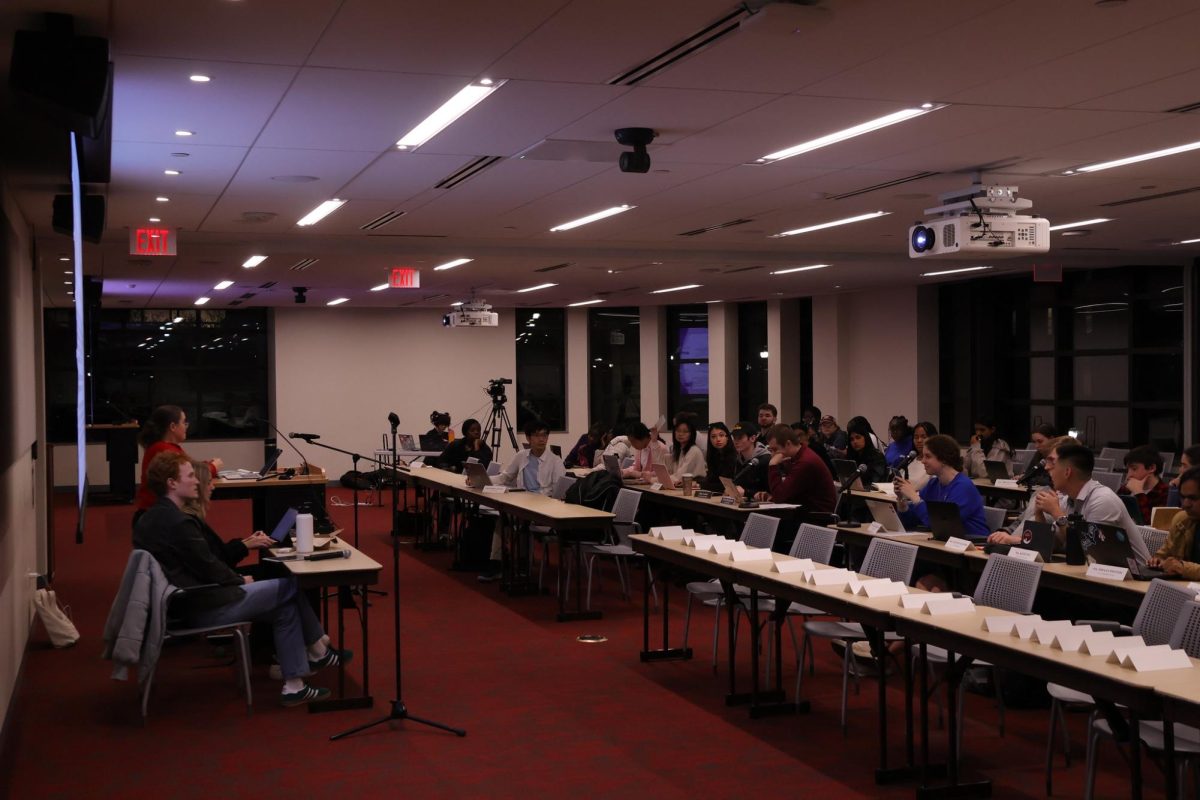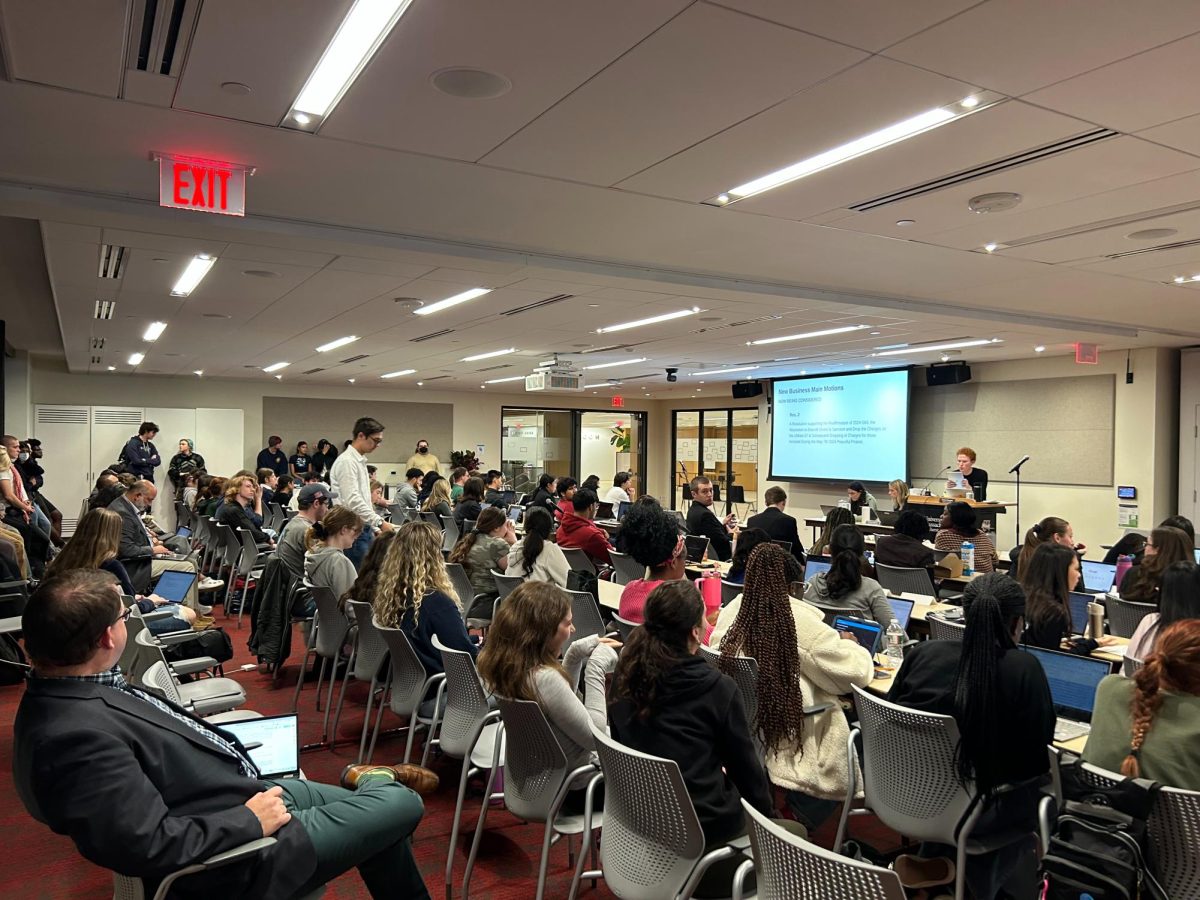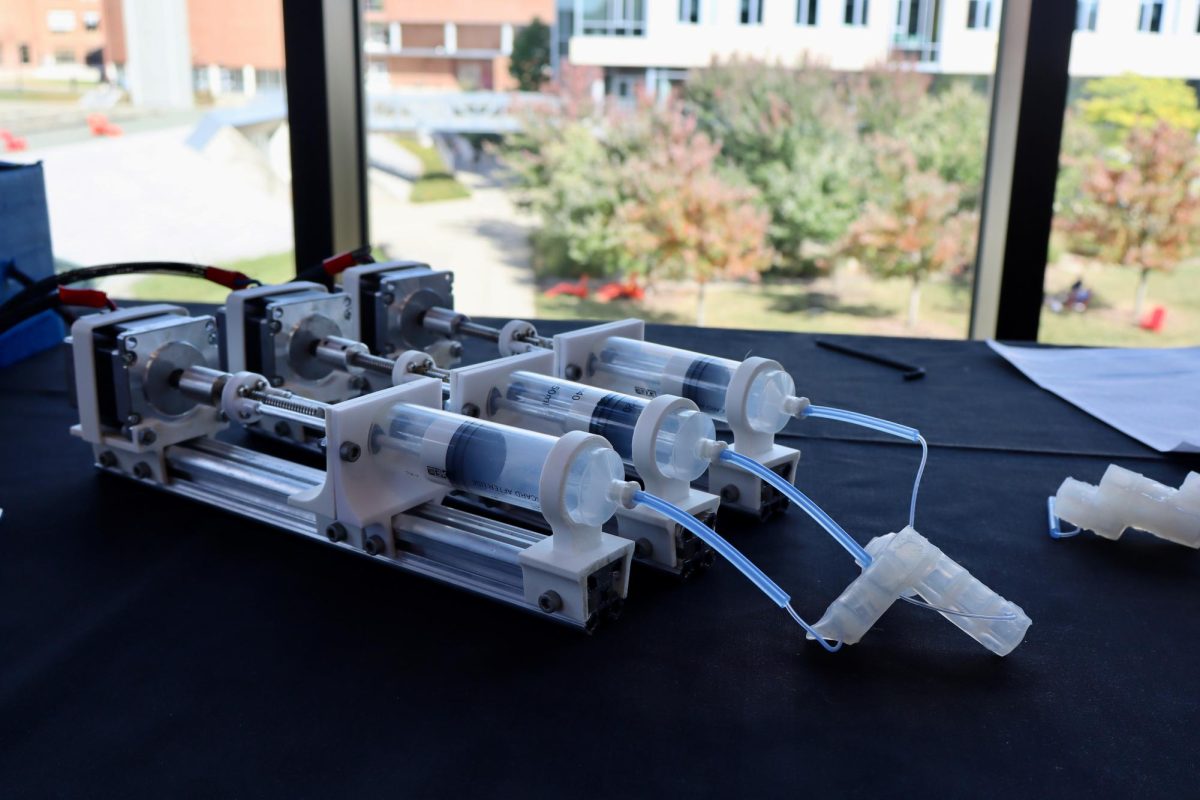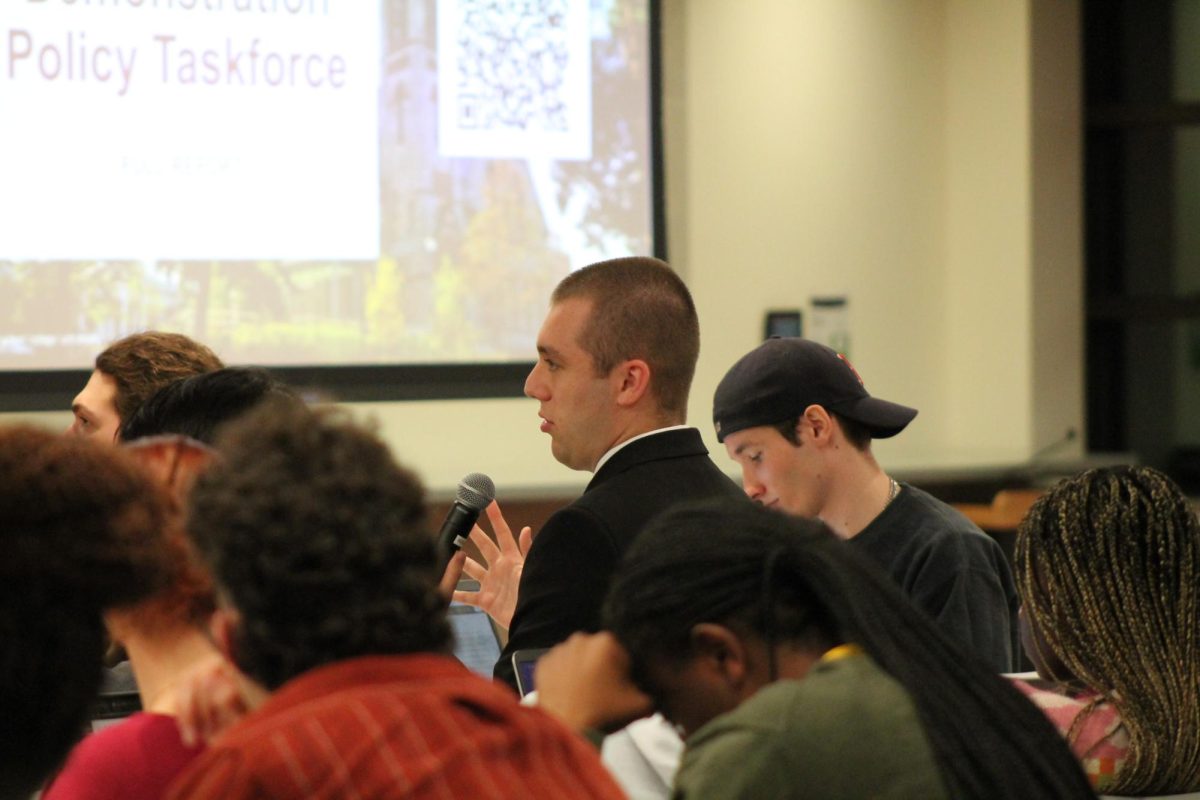Shirts, sweaters, shoes, skirts and more were all up for grabs this past Thursday evening in Greeno Sub Shop at the University of Massachusetts. Over 50 students gathered for a clothing swap meant to reuse old and unused clothing and tackle the problem of “fast fashion.”
The event was organized by Sustainable Style UMass, an initiative created in March by students from UMass Hillel as part of their social justice internship. This was the group’s first exchange.
“The idea behind this is to eliminate clothing waste,” said Gilat Bailen, a freshman sociology major and event organizer who started Sustainable Style UMass after recently learning about “fast fashion,” defined by Merriam-Webster as “an approach to the design, creation, and marketing of clothing fashions that emphasizes making fashion trends quickly and cheaply available to consumers.”
“I think [fast fashion is] one of those things that everyone sort of knows about in the back of their mind, but you don’t really want to open your eyes to it,” said Bailen. “Once I started really opening my eyes to it, seeing how horrible of an issue this really is and how easily it could be fixed I just thought this [swap] would be a really fun idea.”
The clothing swap has multiple benefits, according to its organizers. The general rule for the swap was “leave one, take one,” where students would trade however many articles of clothing they brought with them in exchange for new ones all for free, while at the same time clearing out their closets of unused or unwanted clothing.
Those without clothes to trade could use the digital payment app Venmo to pay the organizers for any clothing they wished to take with them. Sophomore organizer and political science and legal studies major Sofia Langman explained that all proceeds and leftover clothing would also be donated to the Amherst Survival Center, so that these items don’t continue to go unused.
The organizers added that the group Rack City Thrift aided in donations as well. Rack City’s mission statement is that they are a “student-run initiative that strives to keep clothing affordable, ethical, out of the landfill, while supporting on-campus sustainability projects.”
“The fashion industry is really horrible at this point,” Bailen said. “We’re basically in an era where clothing brands try to create clothes really fast, really cheap, so that people will throw them away and buy new clothes very fast.”
Bailen explained that in this fast-paced and trend-based consumer culture that, “so many clothes end up in landfills, it’s a huge waste of water and resources [and] the workers – since it’s usually outsourced to other countries – are barely paid a dollar an hour.”
According to the EPA, “landfills received 10.5 million tons of [municipal solid waste] textiles in 2015. This was 7.6 percent of all MSW landfilled.”
The EPA added, “The recycling rate for all textiles was 15.3 percent in 2015, with 2.5 million tons recycled,” meaning only a fraction of discarded clothing generated was recycled.
“In doing this [swap] we’re trying to promote trading clothes, thrifting, buying more sustainable longer-lasting clothes,” said Bailen, “I think everyone has stuff in their closet that they don’t want and they’re never going to use and you can get new stuff literally for free. And then also it prevents that waste.”
When asked which brands hold up better than others in terms of sustainability, Bailen noted that moderately more expensive clothing brands with more durable clothing, such as Gap Inc., tend to fare better in fighting fast fashion than Instagram-based brands and lower-cost options, such as Forever 21 and H&M, which she explained are “names that are thrown around a lot.”
While tackling a serious issue, the organizers also got in on the fun. Bailen and Langman each brought bundles of clothes from home or donated by friends and relatives to the swap.
“Everyone brought such cool things, everyone has such nice style. I was nervous it was going to be all like old, used gym T-shirts and things like that, but everyone brought such nice stuff,” said Langman, who snagged a reversible jacket for herself as well.
“I think this is a really fun thing that anyone can do, like it didn’t take a long time to put this together, it didn’t take a lot of work, word spread really quickly and like everyone’s having a lot of fun, so I don’t know why you wouldn’t do it,” Bailen said.
Chris McLaughlin can be reached at at [email protected] and followed on Twitter at @ChrisMcLJournal.




















